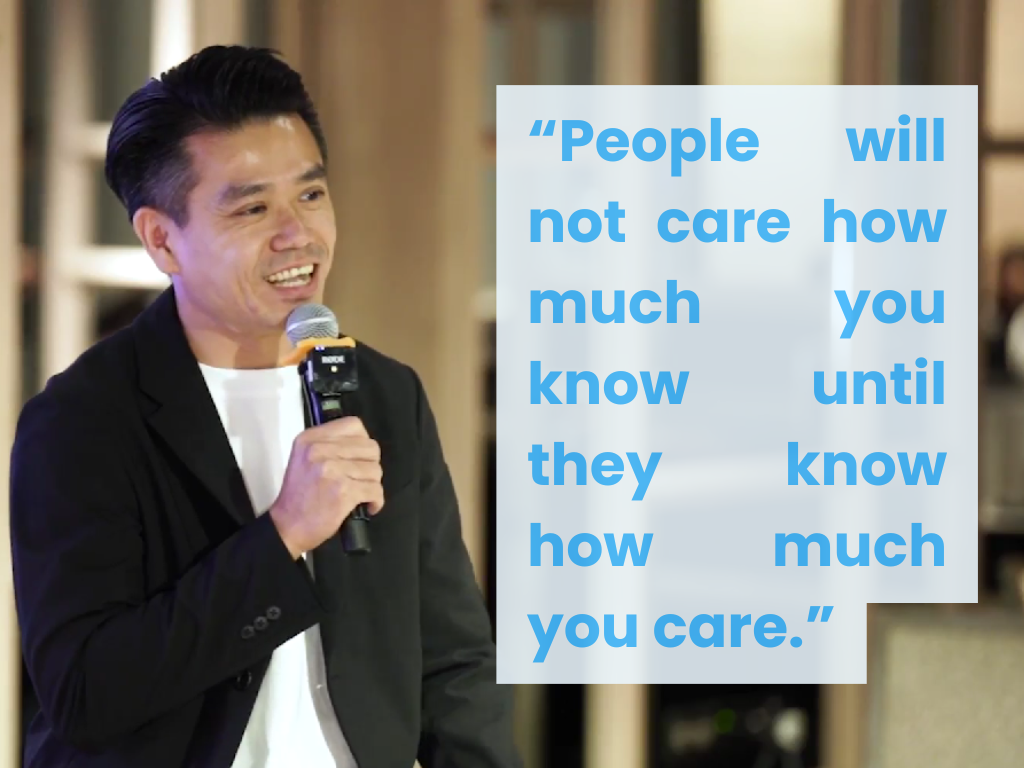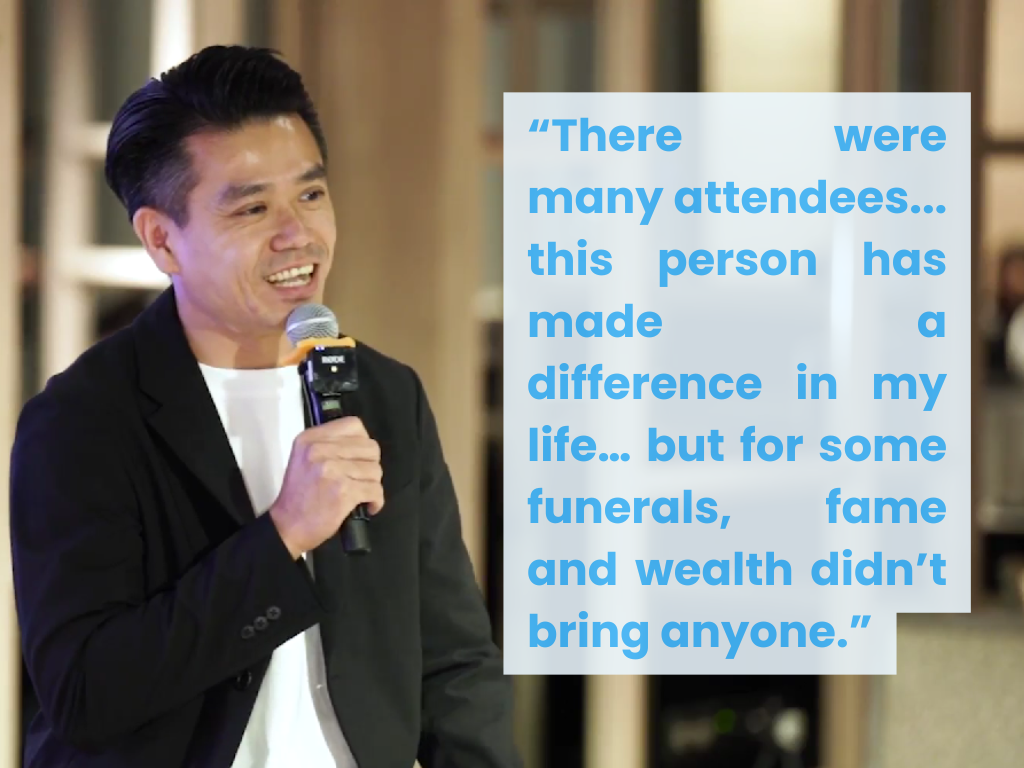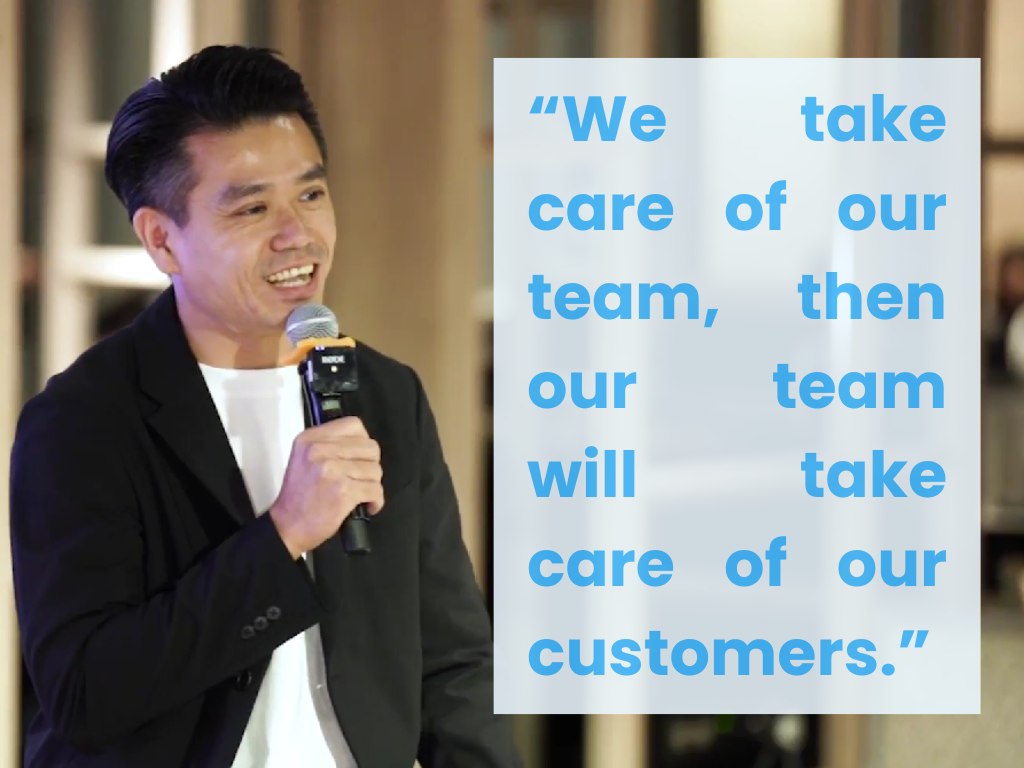Jeffrey Lee, a funeral director turned leadership speaker, shared a powerful message using his experience curating final farewells. The conversation centered on one stark truth: while people chase fame, power, or wealth, what truly matters is how much others care about us—and how much we cared about them. From his perspective, legacy is rooted not in status, but in meaningful connection and purpose.

“I run a one‑way travel agency, no coming back.”
Jeffrey sums up mortality—and leadership—perfectly. Life only goes forward. There’s no return ticket. Leadership too isn’t about temporary wins. It’s about the lasting influence we leave behind in others. That’s the foundation of legacy-based leadership.

“People will not care how much you know until they know how much you care.”
This classic truth takes on new weight coming from a funeral director. At the end of life, knowledge and achievements matter very little. What endures is how you make others feel. This mind-shift separates transactional leadership from compassionate leadership—the type that builds loyalty, trust, and true influence.

“There were many attendees... this person has made a difference in my life… but for some funerals, fame and wealth didn’t bring anyone.”
Jeffrey shares real examples where status and wealth didn’t translate into presence. When people feel truly impacted, they show up—not out of obligation, but out of connection. Leadership impact is measured by how others see the difference you made, not by how much you accumulated.

“We take care of our team, then our team will take care of our customers.”
This is leadership in action. Care begets care. As leaders, we set the tone. Authentic care for people fosters cultures where trust, service, and long-term performance flourish. Legacy leadership is legacy service.
Interested in learning how caring leadership truly works and how to adopt it?
Let’s explore care-based leadership through a simple, practical guide.

What Is Caring Leadership Really About?
At its core, caring leadership is about consistently showing genuine concern, empathy, and support for others—whether they’re team members, colleagues, or stakeholders.
Leaders who care:
- Know the names, dreams, and challenges of those they lead
- Prioritize well-being over metrics
- Invest time in listening, coaching, and growth
- Serve others without expecting immediate returns
Why Does Caring (and Leaving a Legacy) Matter?
Because leadership isn’t a solo journey. It’s relational.
Our legacy is not in the titles we held but in the lives we’ve touched. When leaders prioritize care, they:
- Build trust-based cultures
- Foster loyalty and engagement
- Elevate morale and performance
- Create impact that outlasts any quarter
As Jeffrey says, “People show up for real impact, not reputation.”
What Does Caring Leadership Look Like in Practice?
Some practical examples include:
- Asking the team about their personal goals—not just work goals
- Offering support during life’s challenges
- Acknowledging emotions during difficult moments
- Celebrating both personal and professional milestones
- Modifying expectations in times of hardship
When leaders prioritize people, they create a ripple effect of empathy.
How Do You Start Practicing Caring Leadership?
- Empathy first: Ask and listen to understand rather than respond
- Small acts of care: A meaningful note, check-in, or moment of attention
- Team-first mindset: Leaders protect and advocate for their teams
- Share vulnerability: A leader’s honesty builds humanity and psychological safety
- Model care consistently: The quiet, daily gestures create legacy.
Common Misconceptions About Caring Leadership
- It makes you weak?
No. It requires emotional courage. - It’s only for “soft” roles?
No. Great CEOs, teachers, and scientists lead with care. - You need grand gestures?
No. Everyday empathy and presence matter most.
Final Thought
Jeffrey Lee’s experience reframes leadership not as power or position, but as presence—how deeply we impacted others through care and service.
In leadership, you’ll be remembered not for achievements, but for empathy and influence.
Legacy isn’t built on titles.
It’s built on caring—and on making a meaningful difference in the lives of others.
Would you like this formatted as a blog post, LinkedIn article, or downloadable guide? Let me know and I’ll tailor it for your needs.
Frequently Asked Questions
1. What is caring leadership and how does it relate to legacy?
Caring leadership is a style that prioritizes empathy and support. Legacy emerges when leaders build trust and impact through consistent care—not status.
2. Why do leaders need to focus on caring, not just performance?
Performance may drive results, but care sustains relationships. Leadership that relies only on authority or knowledge rarely builds lasting influence.
3. How can a leader be caring while still holding teams accountable?
Begin with empathy, but also clarify expectations. Caring doesn’t mean no accountability—it means accountability with trust.
4. Can empathy be taught or developed in leaders?
Absolutely. Humility, listening, and intentional reflection help develop real empathy over time.
5. How do you measure the impact of caring leadership?
Look at engagement rates, turnover figures, and colleague feedback. Observe how people respond, trust, and follow. Impact is measured by presence and loyalty.

A trailblazer in humanising leadership and building high-resilience teams. As a former United Nations Peacekeeper, he leverages his high-stakes experience to redefine leadership dynamics. With a career distinguished by numerous accolades, Joseph now helps organizations thrive through a human-centric approach, enhancing performance, productivity, and workplace culture.







